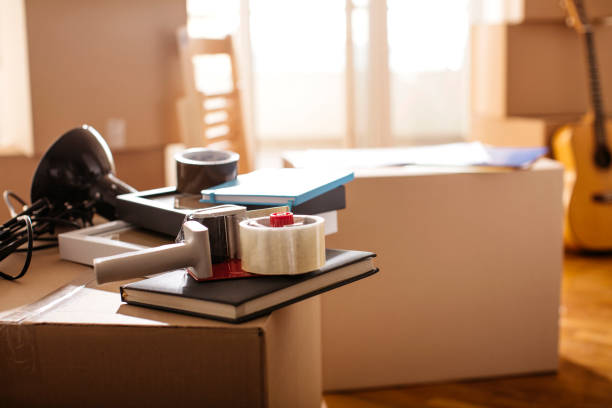Moving to a new home or office can be an exciting yet stressful experience. Proper packing is one of the most crucial aspects of ensuring a smooth transition. From protecting your valuables to staying organized, this guide will walk you through everything you need to know about moving-related packing in Eugene OR.
Understanding the Importance of Packing for a Move
Packing is more than just putting items in boxes; it’s about safeguarding your belongings and minimizing stress. Poor packing can lead to damage, loss, or frustration during unpacking. A thoughtful approach can save time and money while making your move seamless.
Essential Packing Supplies You’ll Need
Investing in the right supplies ensures your items are safe during transit. Here’s a checklist of must-haves:
- Sturdy Boxes: Different sizes for various items.
- Packing Tape: Durable to seal boxes securely.
- Bubble Wrap and Packing Paper: For fragile items.
- Markers and Labels: To identify contents easily.
- Furniture Covers: To protect large items like sofas.
- Scissors or Box Cutters: For convenience during packing and unpacking.
Developing a Packing Plan
A plan keeps you organized and prevents last-minute chaos.
- Create a Packing Schedule: Divide tasks into manageable daily goals.
- Start with Non-Essentials: Pack items you rarely use first, like seasonal decor.
- Room-by-Room Approach: Focus on one room at a time to avoid confusion.
Decluttering Before You Pack
Before packing, sort through your belongings and decide what to keep, donate, or discard. Decluttering not only reduces the volume to pack but also saves space and money. Consider hosting a garage sale or donating to local charities.
How to Pack Fragile and Valuable Items
Fragile items require extra care to avoid breakage:
- Wrap Individually: Use bubble wrap or packing paper for each item.
- Use Dividers: For dishes, glasses, and other breakables.
- Label Clearly: Mark boxes as “FRAGILE” and indicate the top side.
- Pack in Small Boxes: To minimize movement and reduce the risk of damage.
Packing Large and Bulky Items
For furniture and appliances, follow these tips:
- Disassemble When Possible: Remove legs, drawers, or other detachable parts.
- Use Protective Covers: Prevent scratches and dents.
- Secure with Straps: Use moving straps to hold items in place during transport.
- Take Pictures: Document assembly steps for reassembly at your new location.
Labeling and Organizing Boxes for Efficiency
Clear labeling simplifies the unpacking process.
- Color-Coding: Assign colors to each room (e.g., red for the kitchen, blue for the bedroom).
- Detailed Labels: Write down contents and destination room on each box.
- Inventory List: Keep a master list of all boxes and their contents.
Mistakes to Avoid While Packing
Avoiding common packing pitfalls can save you from headaches:
- Overpacking Boxes: Keep them lightweight to prevent accidents.
- Ignoring Essentials: Pack a “first-night” box with toiletries, snacks, and chargers.
- Procrastinating: Start early to avoid last-minute panic.
- Skipping Insurance: Ensure valuable items are insured during the move.
Hiring Professional Packing Services
If time or expertise is an issue, professional movers can handle packing for you. Benefits include:
- Efficiency: Experienced packers can complete the job quickly.
- Expertise: Proper handling of delicate or unusual items.
- Convenience: Focus on other aspects of your move while professionals pack.
FAQs
Q1: How far in advance should I start packing for a move?
Start packing non-essential items 4-6 weeks before your move. Essential items can be packed in the last week.
Q2: What is the best way to pack clothes for a move?
Use wardrobe boxes for hanging clothes and vacuum-sealed bags for folded items to save space.
Q3: How do I protect fragile items during a move?
Wrap each item in bubble wrap or packing paper, use padding in the box, and label the box as “FRAGILE.”
Q4: Can I reuse boxes for packing?
Yes, but ensure they are sturdy, clean, and free from damage to protect your belongings.
Q5: Should I hire professional movers for packing?
Professional movers are recommended for large, fragile, or complex items, but you can handle basic packing yourself to save costs.
Conclusion
Proper packing is the cornerstone of a successful move. With the right tools, strategies, and a little patience, you can ensure your belongings arrive safely at your new home. Whether you choose to pack yourself or hire professionals, staying organized and prepared is the key to a stress-free moving experience.
